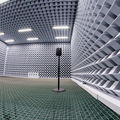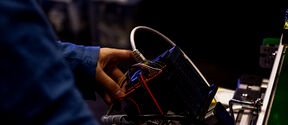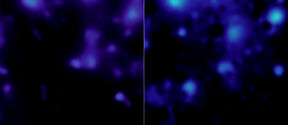Research infrastructure of the School of Electrical Engineering
On this page, you will find information about the research infrastructures of the School of Electrical Engineering.

Here at the School of Electrical Engineering our students and researchers get a chance to roll up their sleeves, because we conduct a lot of applied research in addition to theoretical research. Our investments in first-class facilities and research equipment ensure that our hard work will help society evolve.
We are a very close-knit and international community consisting of people from different backgrounds. Everything we do is for the common good, whether it is greener technology or better solutions for healthcare. Artificial intelligence is closely related to our work, and with the help of new innovations we maintain Finland’s competitive edge in the energy, environment, and healthcare industries.
We have three departments and one separate unit.
The department of Information and Communications Engineering has a strong focus in the ICT area varying from ICT technology to core electrical engineering and its basic phenomena.

Department of Electronics and Nanoengineering (ELE) conducts research and arranges related teaching courses in the fields of electromagnetics, micro and nanotechnology, radio engineering, and space technology.

The Department of Electrical Engineering and Automation is an ecosystem where scientists and engineers from different fields of microsystems, electrical engineering and automation work together to solve the most challenging scientific problems.

Metsähovi Radio Observatory is the only astronomical radio observatory in Finland. Metsähovi’s main instrument is the 14-metre radio telescope, which is used around the clock, every day of the year. Its observational data is used, e.g., for studying active galaxies, the Sun, and the rotation of the Earth.


On this page, you will find information about the research infrastructures of the School of Electrical Engineering.
Aalto University’s tenure track career system offers a well-supported and clear career path for professor-level academics towards a permanent professorship.




